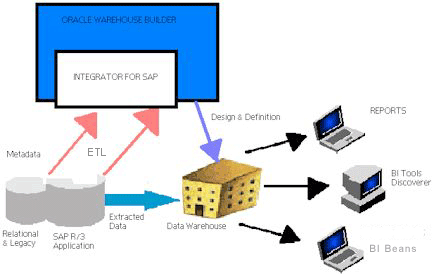
|
||||
|
Together, Oracle9i Database, Oracle9iAS, and Oracle9iDS business intelligence tools provide the technology foundation for building a complete and integrated solution for data warehousing and business intelligence. Oracle9i Database's powerful ETL functionality is built right into the database itself, to improve performance and scalability of your data warehouse. Oracle9i Warehouse Builder (OWB), which works in conjunction with Oracle9i 's ETL functionality, helps you to design, deploy, and manage enterprise data warehouses, data marts, and e-Business intelligence applications. The OWB repository supports multiple users simultaneously and stores the metadata for all source definitions, target data warehouse designs, and source-to-target mappings. The repository is compatible with the Common Warehouse Model (CWM) standard, which makes OWB metadata accessible to other products that support the standard. For example, you can create a Discoverer End User Layer from the business areas section of OWB. By specifying the data objects to be included and defining the attribute level for the Discoverer items, the metadata can then be exported via the Discoverer Bridge. Whether you import a design from Oracle9i Designer or start a new design, the powerful graphical user interface, wizard-driven processes, and library of pre-defined transformations provided in OWB let you design and implement data warehouses fast and efficiently. The enhanced Mapper in OWB supports join and split operators, multi-stage transformations, non-equi joins, inline expressions, and incremental code generation. You can select multiple sources and multiple targets in the mapping. In addition to the standard scalar SQL functions and over 40 pre-defined transformations, you can write your own transformations in PL/SQL or reverse engineer existing PL/SQL programs from the database. OWB supports accurate, automated transformation and data loading. The OWB Code Generator validates objects, mappings, and transformations, then generates error-free code for implementing the warehouse. The generated packages are optimized for the Oracle database, eliminating the need for an additional transformation server. Broad integration is achieved through adherence to the CWM standard, support for ODBC and Oracle Transparent Gateways, and Integrators for ERP applications, non-Oracle databases, and flat-file data sources. |

|
|||